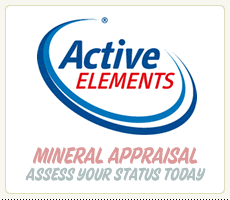Iodine - a trace element often deficient in our diets
Iodine
Article by Angela Haldane
Q. Whilst New Zealand has been noted for insufficient iodine levels, what does this imply for our health and how would you recommend that we naturally get enough iodine?
A. Iodine is an essential trace element for normal brain development. It is also essential for thyroid hormones which maintain the body’s metabolic state and supports normal growth and development in children. In 2002 a National Children’s Nutrition Survey found 28% had low iodine levels amongst 5-14 year olds. Infants and toddlers obtain their iodine from baby foods, milk and milk products. Iodine must be obtained regularly from the diet as it is not conserved for long term use.
Iodine is also thought to increase the conversion of oestrogen to estriol. A lack of iodine can be linked to fibrocystic breast disease and breast cancer.
Iodine can facilitate the excretion of arsenic and aluminium from the body.
Diuretics and excessive sweating can increase the excretion of iodine.
Foods rich in iodine include seafood – fish, shellfish and seaweed, iodised salt, and seameal custard. The New Zealand Food Safety Authority (NZFSA) recommend the use of iodised salt (potassium iodide) as part of a normal diet. The iodised salt has silica dioxide (551) as an anticaking agent which has good safety parameters.
Iodine is an active ingredient in kelp supplements. Some kelp supplements (tablets) are standardized to contain 225 micrograms of iodine.
The optimal daily allowance (ODA) of Iodine (for adults) is 225 mcg per day.
Usually 150mcg is the recommended daily dose used in Multivitamin tablets.
The best form is Potassium Iodide
If you suspect that you have thyroid dysfunction, which may or may not, be due to an iodine deficiency, you should consult with your doctor.
Excess iodine can lead to further health problems.
The actual therapeutic dosage of iodine and/or medication for the thyroid should be determined by a physician.
Posted: Thursday 27 May 2021



